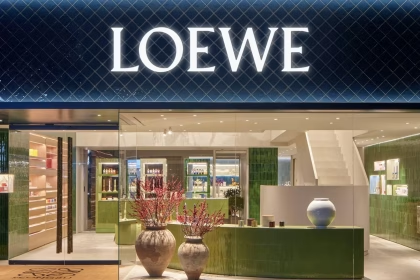A New York federal jury has ruled in favour of luxury fashion house, Hermès in the trademark infringement case against MetaBirikin NFT. Hermès sued Rothschild one year ago, alleging that the MetaBirkin NFTs violate the trademark rights of Hermès. OpenSea delisted MetaBirkins by Jan. 2022, shortly after Hermès sent Rothschild a cease and desist.
The artist who created the MetaBirkin non-fungible token inspired by the Hermes’ famous Birkin bag has been hit with a judgement against it for $133,000 USD in damages to be awarded to Hermès for trademark infringement, dilution, and cybersquatting. The jury found that artist Mason Rothschild unauthorized use of “MetaBirkin” were likely to confuse customers.
Rothschild’s attorney Rhett Millsaps called the result a “terrible day for artists and the First Amendment.”
Non-fungible tokens (NFTs) are unique digital assets authenticated using blockchain technology. NFTs depicting fashion items have sold millions in the past 2 years.
Hermes’ most coveted Birkin handbags sell for tens of thousands of dollars due to high demand and limited supply for the exclusive heritage brand. The luxury fashion house has sold over $1 billion worth of Birkins in the United States, including more than $100 million worth in the past ten years.
We reached out to legal experts and luxury online retailer of Hermès Birkin handbags, Madison Avenue Couture to get their opinions on the Hermès vs. MetaBirkin trademark case outcome.
“This is an important test case similar to those early cybersquatting decisions ruling in favor of trademark owners and against opportunistic, unauthorized trademark use by defendants attempting to leverage the Internet, or in this case, NFTs, to their advantage. As such, it was correctly decided and should discourage similar such attempts in the future,” said William Scott Goldman, Managing Attorney/Founder of Goldman Law Group, PLLC.
“I think the ruling is fair. Hermes most valuable asset is their brand, and they can’t afford for that brand to be tarnished by an NFT,” Taylor continued. “Maybe Hermes will introduce their own NFT’s someday and this was a conflict with their marketing and brand strategy. I think it is important that this ruling went in favor of Hermes and that all luxury brands are protected from posers on the internet,” said Judy Taylor, CEO and President of Madison Avenue Couture
“The ruling is a huge win for brand owners and shows that trademark rights do extend to the metaverse. Rothschilds “metabirkins” were a form of artistic expression but still could not get First Amendment protection as such. That is important. The jury ruled quickly and Hermes plan to enter the metaverse rather soon certainly played a factor in the decision, despite the brands lack of an actual trademark registration,” said Zak Kurtz, attorney and founder of Sneaker Law Firm PLLC dba Sneaker & Streetwear Legal Services.
View this post on Instagram
“The verdict was fair. On one hand, NFTs are art; and I do believe what Rothschild created was art. However, in my opinion, artistic expression ended the moment the NFTs were sold under the boldly titled collection name “#MetaBirkin.” It can’t be ignored that profit was made on the back of the Hermès brand. The Hermès Birkin bag is a highly recognizable product. There is no doubt that consumers were purchasing these NFTs because of the similarities to the real Birkin bag and their association with the Hermès brand. There’s a big lesson to be learned from this. If you do not own the trademark, do not create products of any kind for sale without prior permission and a licensing agreement in place,” said Keziah Colleton, Attorney/Founder of Colleton Law, PLLC.
“I think that the ruling was fair for brands but foul for artists. For brands it allows them to protect the rights to the brands they have built. For artists, it unfortunately sets limitations on their creativity in the web3 space, particularly since a lot of art is based on gaming, society, or pop-art. For the digital world, this requires artists to be more careful in terms of what they use in their art as NFTS can now be seen as a consumer product. And brands should continue to police their marks,” said Shermin Lakha, Founder and Managing Attorney of LVLUP Legal.

















